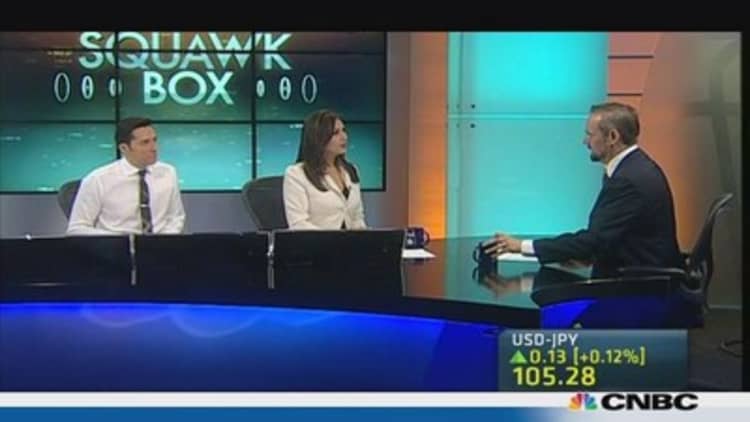The future direction of China is the "major" source of uncertainty facing the global economy at the moment, according to billionaire investor George Soros.
"The major uncertainty facing the world today is not the euro but the future direction of China. The growth model responsible for its rapid rise has run out of steam," Soros, chairman of the Soros Fund Management, wrote in an opinion piece on the Project Syndicate website on Thursday.
Soros says there are "unresolved contradictions" in the leadership's current policies, which would have profound consequences for China and the world if they are not addressed.
"The Chinese leadership was right to give precedence to economic growth over structural reforms, because structural reforms, when combined with fiscal austerity, push economies into a deflationary tailspin," he said.
(Read more: Contrarian call: China to see double-digit growth in 2014)
"But there is an unresolved self-contradiction in China's current policies: restarting the furnaces also reignites exponential debt growth, which cannot be sustained for much longer than a couple of years," he said.
While the People's Bank of China began taking steps to curb the growth of debt in 2012, the government asserted its authority when the slowdown started to cause distress in the economy, he said. In July 2013, the leadership ordered the steel industry to restart the furnaces and the central bank to ease credit, enabling the economy to turn on a dime, he noted.
The economy's reliance on credit was illustrated in a recent report published by the country's state auditor, the National Audit Office, which showed local government debt had increased 67 percent from the end of 2010 to reach 17.9 trillion renminbi ($2.95 trillion) by the end of June 2013.
(Read more: China debt: The biggest 'known, unknown' in 2014?)
"A successful transition in China will most likely entail political as well as economic reforms, while failure would undermine still-widespread trust in the country's political leadership, resulting in repression at home and military confrontation abroad," he said.
According to Soros, there are some "eerie resemblances" with financial conditions in the mainland and those that prevailed in the U.S. in the years preceding the crash of 2008.

However, he acknowledges that the Chinese government's control over the economy is a key, underlying difference between the two countries.
(Read more: China will not overtake US economy until 2028: CEBR)
"In the U.S., financial markets tend to dominate politics; in China, the state owns the banks and the bulk of the economy, and the Communist Party controls the state-owned enterprises," he added.
—By CNBC's Ansuya Harjani; Follow her on Twitter: @Ansuya_H


